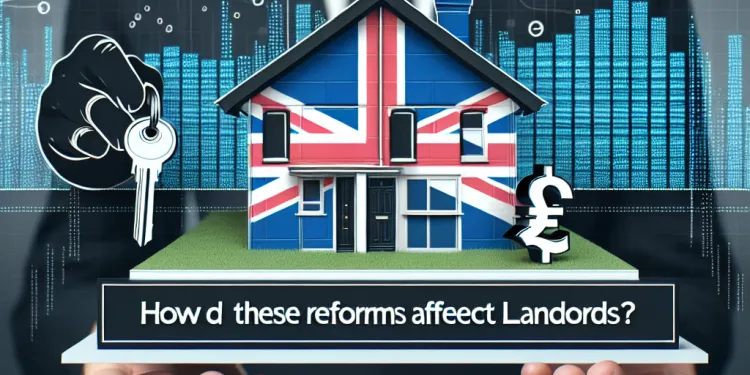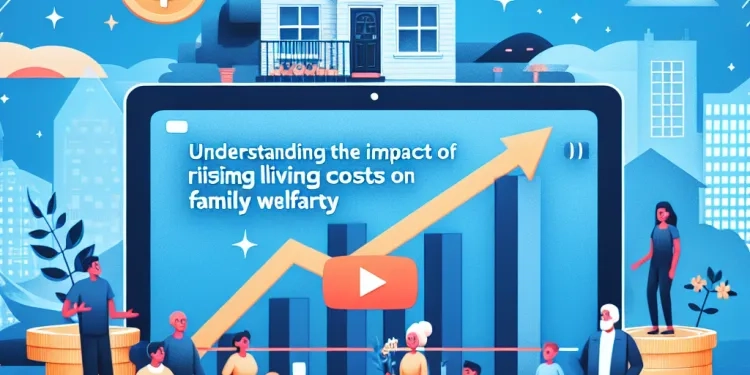
Find A Professional
More Items From Ergsy search
-

How does the reform impact renting costs?
Relevance: 100%
-

Upcoming Changes to Parental Leave Policies in the UK
Relevance: 73%
-

Are apprentices entitled to the National Living Wage?
Relevance: 69%
-

How are rent increases regulated under the new law?
Relevance: 67%
-

Navigating the Changes to Parental Leave Regulations
Relevance: 62%
-

Are there reforms concerning subletting?
Relevance: 60%
-

Are there any apprenticeship routes to becoming an NHS nurse?
Relevance: 58%
-

How do these reforms affect landlords?
Relevance: 57%
-

What are the new Tenancy Law Reforms in the UK in 2025?
Relevance: 54%
-

How can parents provide feedback on school meals?
Relevance: 51%
-

Impact of Cost of Living on UK Communities
Relevance: 50%
-

How much does a facelift cost?
Relevance: 50%
-

Navigating Legal Guardianship and Parental Responsibility in the UK
Relevance: 49%
-

How are parents involved in the SEND process?
Relevance: 47%
-

Is there an impact on short-term rentals?
Relevance: 45%
-

What is the average cost of a funeral in the UK?
Relevance: 45%
-

Can I receive this payment alongside other cost of living payments?
Relevance: 44%
-

How Rising Living Costs Are Impacting Family Wellbeing
Relevance: 44%
-

Can students apply for Cost-of-Living support?
Relevance: 43%
-

What are the administrative costs of a wealth tax?
Relevance: 43%
-

How much does hip replacement surgery cost in the UK?
Relevance: 43%
-

Does the reform address uninhabitable properties?
Relevance: 42%
-

How much does Botox cost?
Relevance: 42%
-

What is the average cost of a school meal in the UK?
Relevance: 41%
-

What factors influence changes to the energy price cap?
Relevance: 41%
-

What costs are usually associated with a funeral?
Relevance: 41%
-

Can I stop an eviction if I catch up on rent payments?
Relevance: 40%
-

What new protections are included for tenants?
Relevance: 40%
-

What is the role of parental monitoring in children's screen time and sleep?
Relevance: 40%
-

Does Universal Credit cover childcare costs?
Relevance: 39%
-

What is the £500 cost of living payment?
Relevance: 39%
-

Understanding the Impact of Rising Living Costs on Family Welfare
Relevance: 37%
-

Where can I find more information about the £500 cost of living payment?
Relevance: 35%
-

Do I need to pay tax on the £500 cost of living payment?
Relevance: 34%
-

Is the £500 cost of living payment a one-time payment?
Relevance: 34%
-

Understanding Parental Rights in Light of New UK Child Protection Legislation
Relevance: 34%
-

Do I need to pay back Household & Cost-of-Living grants?
Relevance: 32%
-

What financial help is available for funeral costs?
Relevance: 32%
-

Impact of Rising Living Costs on Family Health
Relevance: 32%
-

Funeral Costs - Where to get help? - Community Legal Education
Relevance: 32%
The Impact of Reform on Renting Costs in the UK
Reforms in the rental market play a significant role in shaping the costs tenants face. In the UK, legislative changes aimed at increasing tenant protections and improving housing standards can influence both the supply and demand within the rental sector, ultimately impacting rent prices. Understanding these dynamics is crucial for both landlords and tenants navigating the housing market.
Tenant Protections and Their Influence on Rent
In recent years, the UK government has introduced various reforms to strengthen tenant rights, such as the abolition of Section 21 "no-fault" evictions under the proposed Renters' Reform Bill. These changes aim to provide tenants with increased security and prevent unfair evictions. While this benefits tenants by creating more stable living conditions, it could potentially lead landlords to increase rents to mitigate perceived risks associated with longer tenancies or tougher eviction processes.
Moreover, the Tenant Fees Act of 2019, which prohibits letting fees and caps tenancy deposits, has already influenced rent costs. Some landlords and letting agents, unable to charge upfront fees, may adjust rental prices upward to compensate for the loss of income from these fees.
Supply and Demand in the Rental Market
Rental market reforms can affect the supply of available properties. For instance, stricter regulations and increased obligations on landlords may deter prospective landlords from entering the market or encourage existing landlords to sell. A reduced supply of rental properties, unless matched by a decrease in demand, typically leads to higher rents.
Conversely, initiatives aimed at boosting housing supply, such as investments in affordable housing and incentives for build-to-rent developments, can increase the availability of rental properties. This increase in supply can help stabilize or reduce rent prices, assuming demand does not outstrip this new supply.
Impact of Energy Efficiency and Quality Standards
Reforms targeting energy efficiency and property standards can also impact rent prices. With the government focusing on reducing carbon emissions and improving the quality of housing, landlords may be required to invest in energy efficiency upgrades like better insulation or new boilers. The costs associated with these improvements could lead landlords to raise rents to recoup their investments.
On the other hand, properties that meet or exceed new energy efficiency standards may become more desirable, potentially allowing landlords to justify higher rents due to improved living conditions and reduced utility costs for tenants.
Conclusion
While reforms in the UK rental market aim to provide better protections and living conditions for tenants, they can have complex effects on renting costs. By balancing these legislative changes with measures to increase housing supply and promote fairness, the impact on rents can be moderated, benefiting both tenants and landlords in the long run.
The Impact of Change on Renting Costs in the UK
Changes in rules about renting homes can change how much it costs to rent. In the UK, new laws that help renters and make homes better can change how many homes are for rent and how much people want to rent them. This can make rents go up or down. It is important for people who rent and people who own homes to understand these changes.
How New Rules Help Renters
Lately, the UK government has made new rules to help people who rent. One big change is stopping "no-fault" evictions. This means renters can stay in their homes without being asked to leave for no reason. This makes renting safer for renters. But, because of these new rules, landlords might charge more rent because it might be harder to ask renters to leave or change tenants.
Also, a law from 2019 says landlords cannot charge extra fees when you start renting and puts limits on how much deposit you have to pay. Some landlords might raise the rent price because they can't charge these fees anymore.
How Many Homes Are for Rent
New rules can change how many homes there are to rent. If it becomes harder for landlords to follow rules, some might decide not to rent homes anymore. This means fewer houses to rent can make rent prices go up if a lot of people want to rent.
On the other hand, if the government builds more homes or makes it easier to rent, there will be more homes available. This can help keep rent prices normal or even make them go down if there are enough homes for everyone who wants to rent.
Energy Efficiency and Quality of Homes
New rules also focus on making homes better to save energy. This might mean landlords need to pay to make homes warmer or change old heating systems. These costs might make landlords raise rents.
But, homes that save energy can become more popular. Renters might be happy to pay more because they will have lower bills for heating and electricity.
Conclusion
New rules for renting in the UK are there to help renters and make homes better. But these changes can also make rents go up or down. By making more homes with fair rules, rents can be kept at a good level for everyone, making both renters and landlords happy.
Frequently Asked Questions
What is the main focus of the reform impacting renting costs?
The main focus of the reform is to regulate and stabilize rental prices to ensure affordability and prevent excessive rent hikes.
How will the reform affect current rental agreements?
Current rental agreements might be subject to limitations on rent increases set by the reform, depending on the local jurisdiction.
Will the reform affect all types of rental properties?
The reform typically impacts residential rental properties, but the specifics can vary based on the legislation and local implementation.
Does the reform provide any benefits to landlords?
While the primary aim is to protect tenants, some reforms might include incentives or support for landlords to maintain property standards.
How soon will the reform impact take effect on renting costs?
The timeline varies; some reforms may take immediate effect, while others might be phased in over several months or years.
Are rent control policies part of the reform?
Yes, many reforms include rent control measures to cap annual rent increases and maintain affordability.
What measures are included in the reform to protect tenants?
The reform may include measures such as rent caps, eviction protections, and provision for rental assistance programs.
How will new renters be impacted by the reform?
New renters could benefit from stabilized rents and increased access to affordable housing options.
Will the reform lead to a decrease in rental property availability?
There is a concern that some landlords might withdraw properties from the market, but reforms generally aim to balance tenant protection with market viability.
How are low-income families specifically affected by the reform?
Low-income families may benefit from rent caps and additional assistance aimed at increasing housing affordability and security.
Are there exemptions within the reform for certain property types?
Yes, some property types like new constructions or luxury apartments may be exempt based on specific criteria set by the reform.
Do the reforms include any tax incentives for landlords?
Some reforms might offer tax incentives to landlords who comply with rent stabilization measures or make property improvements.
Is there an appeal process if tenants or landlords disagree with the reform's implementation?
Many jurisdictions will have an appeal process or body to address grievances related to the reform.
Does the reform address rent inflation directly?
The reform aims to curb rent inflation by imposing rent caps and increasing supply to reduce pressure on rental prices.
How will transparency in rental costs be ensured after the reform?
Reforms might include requirements for landlords to provide clear rent histories and justifications for increases.
Will the reform lead to better quality rental housing?
By ensuring stable income for landlords, the reform may incentivize investment in property maintenance and improvements.
Can the reform be modified in the future?
Yes, like any legislative measure, the reform can be revised based on economic conditions and housing market responses.
Are there penalties for landlords who violate the reform's regulations?
Penalties can include fines or even legal action against landlords who do not comply with the new regulations.
How can tenants learn about their rights under the new reform?
Tenants are encouraged to consult local housing authorities or legal aid organizations for detailed information on their rights.
What role do local governments play in the reform's implementation?
Local governments are often responsible for enacting and overseeing compliance with the reform's regulations within their jurisdictions.
What is the main point of the changes affecting how much it costs to rent?
The goal of the new rules is to keep rents fair and stop big price jumps, so people can afford their homes.
What will happen to your rent agreement after the changes?
Right now, there are some rules about how much rent can go up. These rules depend on where you live.
Will the changes affect all rented homes?
This change usually affects people who rent homes. But the details can be different depending on the rules and where you live.
Do the new rules help landlords?
The main goal is to keep tenants safe. But there might also be some help for landlords. This help can make sure they keep the houses nice and well-kept.
When will the new changes affect rent prices?
Changes happen at different times. Some changes start right away. Other changes can take a few months or even years to start.
Is rent control included in the changes?
Rent control means rules to keep rent prices fair and not too high. Are these rules a part of the new changes?
Some ways to understand this better:
- Use simple words to explain what "rent control" means.
- Draw a picture showing how rent control works.
- Ask someone to explain it in their own words.
Yes, there are new rules to help keep rents from going up too much. These rules make it easier for people to afford their homes.
What is being done to help people who rent homes?
The government might make some changes to help people who rent homes. These changes could include rules like:
- Keeping rent prices from going too high.
- Stopping people from being kicked out of their homes too easily.
- Giving help with paying rent if you need it.
How will changes affect new renters?
Here is what new renters need to know:
- Rules might change: New rules could make renting easier or harder.
- Rent costs: The amount you pay for rent could be different.
- Contracts: New contracts might be simpler to understand.
- Support available: Ask for help if you need it.
If you find reading tough, ask someone you trust to explain it. You can also use tools like reading apps or check websites that use simple words to help you understand more.
New people renting homes might get help with rent prices staying the same and have more chances to find homes they can afford.
Will there be fewer homes to rent because of the changes?
Some people are worried that landlords might decide to stop renting out their homes. But the changes try to make things fair for both people renting a home and the landlords.
If you find reading hard, try using a ruler or finger to track the words. Audiobooks can also help you understand better.
How do changes in rules affect families with less money?
Families that don't have much money can get help. They can have limits on their rent and get more help to make housing cheaper and safer.
Are there any special rules for some types of homes in the reform?
Yes, some kinds of buildings like new buildings or fancy apartments might not have to follow the same rules. This depends on special reasons decided by the new rules.
Tools that could help you understand include text-to-speech apps and picture dictionaries. Ask someone for help if you're not sure.
Do the new changes give extra help with taxes to landlords?
Some changes might give landlords tax breaks if they follow rent rules or fix up their properties.
What can tenants or landlords do if they don't agree with the new changes?
If tenants or landlords don't like the new rules, there is a way to ask for help. This is called an "appeal process." It's like asking someone to look at the problem again to make it fair.
People can ask a special group to check if everything is being done right. This group will listen to both sides, like a referee in sports.
If you find it hard to understand, it's okay to ask a friend or family member for help. You can also use tools like a computer reader to read the words out loud.
Many places have a special way to ask for help if someone is upset about the changes. This is called an appeal process.
Does the new plan stop rent prices from going up?
The new rules want to stop rent from going up too much. They will do this by putting limits on how much rent can increase and by building more homes so there are enough for everyone.
How will we make rent costs clear after the changes?
Changes in the rules might make landlords show clear rent history and explain why they raise rent.
Will the changes make homes for rent better?
Changes in rules can help make homes nicer to live in. Good homes are important for everyone.
Tools to help understand:
- Ask someone you trust to explain.
- Use apps that read text out loud.
- Look for pictures and videos about homes and rules.
This change helps landlords get steady money. This might make them want to take better care of their buildings and make them nicer.
Can we change the new rules later?
We can change the new rules if we need to. This means if people think the rules are not working well, they can make them better. Talking to others and asking for help can be useful. Tools like pictures or simple words can help understand the rules more.
Yes, the reform can be changed. People can look at how the economy and housing market are doing and then decide to make changes.
Can landlords get in trouble if they don't follow the new rules?
If landlords don't follow the new rules, they might have to pay money as a fine. They could also get in trouble with the law.
How can people who rent a home learn about their new rights?
If you rent a home, there are new rules to help you. Here’s how you can find out about them:
- Look at simple guides online. Websites can have easy guides about the new rules.
- Ask someone who knows about it, like a family member or friend.
- Visit your local library. They might have books or leaflets with information.
- Call a help line. They can answer your questions over the phone.
- Use audio tools. Some websites read the information out loud.
These can help you understand your rights when you rent a home.
If you rent your home, it is a good idea to talk to local housing help or legal aid. They can tell you more about your rights as a renter.
What do local governments do to help with the changes?
Local governments often make and check the rules of the reform in their areas.
Useful Links
- Ergsy carfully checks the information in the videos we provide here.
- Videos shown by Youtube after a video has completed, have NOT been reviewed by ERGSY.
- To view, click the arrow in centre of video.
- Most of the videos you find here will have subtitles and/or closed captions available.
- You may need to turn these on, and choose your preferred language.
- Go to the video you'd like to watch.
- If closed captions (CC) are available, settings will be visible on the bottom right of the video player.
- To turn on Captions, click settings .
- To turn off Captions, click settings again.
More Items From Ergsy search
-

How does the reform impact renting costs?
Relevance: 100%
-

Upcoming Changes to Parental Leave Policies in the UK
Relevance: 73%
-

Are apprentices entitled to the National Living Wage?
Relevance: 69%
-

How are rent increases regulated under the new law?
Relevance: 67%
-

Navigating the Changes to Parental Leave Regulations
Relevance: 62%
-

Are there reforms concerning subletting?
Relevance: 60%
-

Are there any apprenticeship routes to becoming an NHS nurse?
Relevance: 58%
-

How do these reforms affect landlords?
Relevance: 57%
-

What are the new Tenancy Law Reforms in the UK in 2025?
Relevance: 54%
-

How can parents provide feedback on school meals?
Relevance: 51%
-

Impact of Cost of Living on UK Communities
Relevance: 50%
-

How much does a facelift cost?
Relevance: 50%
-

Navigating Legal Guardianship and Parental Responsibility in the UK
Relevance: 49%
-

How are parents involved in the SEND process?
Relevance: 47%
-

Is there an impact on short-term rentals?
Relevance: 45%
-

What is the average cost of a funeral in the UK?
Relevance: 45%
-

Can I receive this payment alongside other cost of living payments?
Relevance: 44%
-

How Rising Living Costs Are Impacting Family Wellbeing
Relevance: 44%
-

Can students apply for Cost-of-Living support?
Relevance: 43%
-

What are the administrative costs of a wealth tax?
Relevance: 43%
-

How much does hip replacement surgery cost in the UK?
Relevance: 43%
-

Does the reform address uninhabitable properties?
Relevance: 42%
-

How much does Botox cost?
Relevance: 42%
-

What is the average cost of a school meal in the UK?
Relevance: 41%
-

What factors influence changes to the energy price cap?
Relevance: 41%
-

What costs are usually associated with a funeral?
Relevance: 41%
-

Can I stop an eviction if I catch up on rent payments?
Relevance: 40%
-

What new protections are included for tenants?
Relevance: 40%
-

What is the role of parental monitoring in children's screen time and sleep?
Relevance: 40%
-

Does Universal Credit cover childcare costs?
Relevance: 39%
-

What is the £500 cost of living payment?
Relevance: 39%
-

Understanding the Impact of Rising Living Costs on Family Welfare
Relevance: 37%
-

Where can I find more information about the £500 cost of living payment?
Relevance: 35%
-

Do I need to pay tax on the £500 cost of living payment?
Relevance: 34%
-

Is the £500 cost of living payment a one-time payment?
Relevance: 34%
-

Understanding Parental Rights in Light of New UK Child Protection Legislation
Relevance: 34%
-

Do I need to pay back Household & Cost-of-Living grants?
Relevance: 32%
-

What financial help is available for funeral costs?
Relevance: 32%
-

Impact of Rising Living Costs on Family Health
Relevance: 32%
-

Funeral Costs - Where to get help? - Community Legal Education
Relevance: 32%